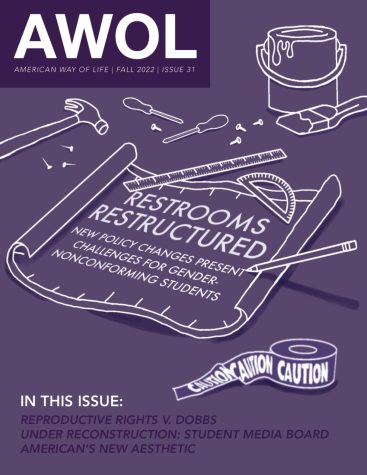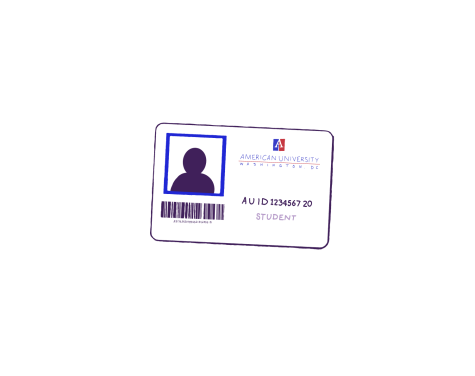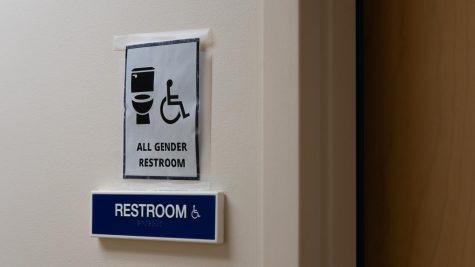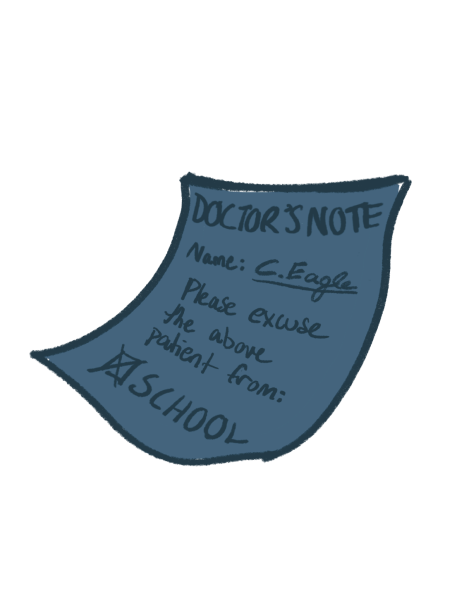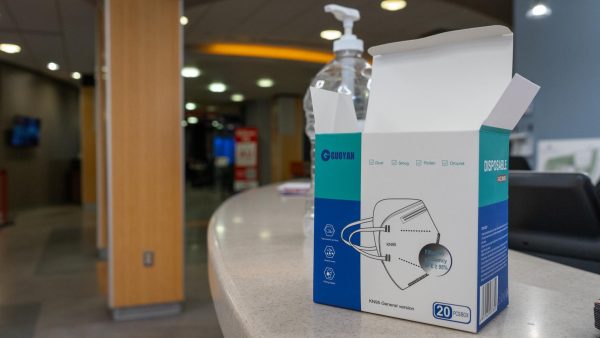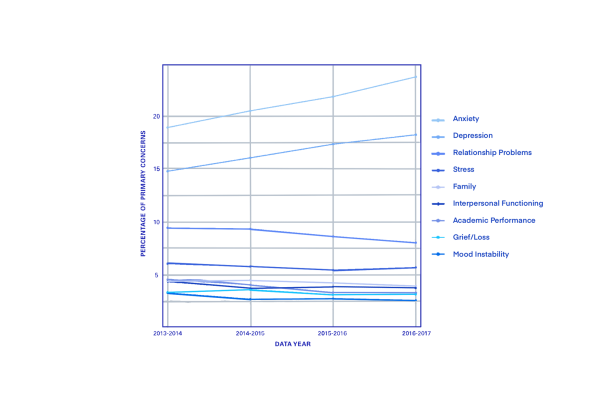Reproductive Rights v. Dobbs
The overturn of Roe v. Wade leaves a lasting impact throughout campus and Washington, DC.
On June 24, the Supreme Court overturned the almost 50-year precedent of Roe v. Wade, which protected the constitutional right to an abortion. In the 2022 case of Dobbs v. Jackson Women’s Health Organization, the right to an abortion was declared not constitutionally protected, and the power to regulate abortion access defaulted to the states.
Students at American University, like senior Hope Neyer, and organizations in Washington, D.C., such as Planned Parenthood, were heavily impacted by the decision to overturn Roe. Over half a million abortions were performed in 2019, according to the Centers for Disease Control and Prevention. The majority of Americans say that they want abortion to be legalized: A 2022 survey from the Pew Research Center found that 61% of Americans want abortion to be legal, while only 37% want abortion to be illegal.
Roe prohibited states from banning abortions during the first trimester, the first 13 weeks of a person’s pregnancy. States could only regulate abortions reasonable to a person’s health during the second trimester, 14 to 26 weeks of a person’s pregnancy, according to the text in the majority opinion of Roe.
Since Roe has been overturned, states now are in control of whether abortion is legal or not. States, such as Texas, who moved to enact abortion bans.
The implications of Roe being overturned reached across America, including college campuses that neighbor the Supreme Court.
AU senior Hope Neyer from Ohio was dyeing her hair and cooking dinner when she heard that the Supreme Court was likely to overturn Roe. Neyer heard the news from a text her mom sent her about Politico leaking a draft opinion of Dobbs on May 2. Neyer said she stopped everything.
“My world exploded,” Neyer said.
Neyer said college is a critical time for students like her, whose earlier sexual education was not entirely accurate.
“College represents the first time for a lot of people that they are away from home and away from the environment they grew up in,” Neyer said. “College also represents the first time for a lot of people that they have frequent sex with members of their preferred gender. And for some people, a consequence of that is having an unplanned pregnancy and potentially unsustainable pregnancy.”
Neyer said she has been invested in the reproductive justice movement for five years, first getting involved back in her hometown. Neyer said she continued her involvement as soon as she got to AU, and currently works at an abortion clinic in the district.
The clinic she works for in the district is seeing an increase in patients from Texas, West Virginia and Kentucky–states where abortion rights are heavily debated, Neyer said.
“Obviously more regularly since these trigger bans have gone into effect after the Dobbs decision came out,” Neyer said.
Ohio has a six-week ban on abortion. However, Neyer said she would have resources and support if she were to return to her hometown state and want an abortion. It’s underprivileged people, Neyer said, who need to be centered in discussions of abortion access.
“We can’t cater our big dreams for the future around the people that are already in a pretty good place,” Neyer said. “We have to imagine a world where we start with the people who are not [in] so good of a place, and work to make futures that are livable and autonomous and healthy for them.”
Dr. Akila-Ka Ma’at is an assistant professor at George Mason specializing in African American Studies. She said that restricting abortion will affect marginalized communities, especially effects on the Black community in particular.
Black people and babies have the highest mortality and morbidity rates among pregnant people of various racial groups, Ma’at said. Black pregnant people and their infants are more likely to die in childbirth, and those who survive are more likely to develop disabilities, according to Ma’at.
“Black [people] are dying on the delivery tables, and so are their infants,” Ma’at said. “They’re gonna be looking for ways to get abortions that could lead to back alley abortions again and more deaths. More Black [people] are going to die on the delivery table as a result of the overturn of Roe.”
Senior Lillian Frame interned at the Planned Parenthood Maine Action Fund over the summer. Frame said what it was like at her workplace the day Roe was overturned.
“There’s nowhere else I would have rather been on that day than in the Planned Parenthood office for 12 hours, with people who cared so deeply about this issue, as we all just held that space for each other,” Frame said.
Frames’ time as a summer intern was both “the most incredible” and “the most exhausting” experience of her life, she said, because it coincided with the Dobbs decision.
“It’s terrifying, every day, knowing and kind of having to constantly come to terms with the fact that we have lost a right that seems so basic,” Frame said.
Frame said she thinks of her younger cousins and the lengths she would go if they ever needed assistance accessing abortion care.
“As long as I’m alive, they will be able to receive whatever care they need, even if I have to fly them to a different country on my own credit card,” Frame said. “I’m lucky I can say that and know that I’m in a family where that’s a decision that we’ll make together.”
Frame is opposed to AU’s Students for Life of America chapter. Students for Life of America is a nonprofit organization that advocates against abortion. The organization creates high school and college chapters across America.
In September, the university’s Student For Life chapter planned to host an event celebrating the overturning of Roe. However, the group posted a social media statement the day of the event, saying it would be canceled due to planned protests.
“If they are so confident in their position, if they’re so confident that they’ve won, why are they being so scared about any kind of challenge to that,” Frame said. “I love life, and that’s why I want more people to have abortions. I want them to have the fullest access to the life that they want to live as is humanly possible.”
In a statement sent by a representative of the Students for Life chapter at AU, the chapter refers to the overturn of Roe as one of the “greatest victories for human rights in American history.”
“This overturn and its effects have allowed for thousands of unborn lives to be protected and spared,” said the representative, who requested not to have their name included. “We care about honoring human dignity, life and value, and see abortion as an immediate and pervasive threat to our humanity. Angry words or social opposition is not going to rock that fundamental belief instilled in so many of us.”
The Students for Life chapter said they ran into issues with the university to continue existing as a fully active club on campus.
“If it was difficult before to be pro-life on AU’s campus, it is only increasingly more so now,” the representative said. “We plan to resume as a fully-functioning club in spring of 2023. As a club, we care deeply about making sure mothers feel supported enough to choose life and are looking forward to being able to plan opportunities for AU students to serve mothers in need.”
Caroline Wharton, press strategist and staff writer for Students for Life, said the organization wants to help pregnant people.
“We want to make sure that [people] feel so supported in their pregnancy journeys that whether they choose to parent, whether they choose to place their child for adoption, or whether they’re going through post-abortive regret, we want to walk alongside them and make sure that they feel supported,” Wharton said.
Students for Life is a diverse group of students, Wharton said. “Not everybody is a Republican, not everybody is a Democrat, not everybody is a Christian or even religious, not everybody is a girl or a boy,” Wharton said.
“The one thing that unites all the students, even though they’re very different, is just that they want to see that pre-born life in the womb protected.”
Shaohannah Faith, the capital area regional coordinator for Students for Life, said the district’s political climate is unique.
“It is definitely an interesting environment compared to other areas of the country, but the unique thing is we are right here in the heart of the capital,” Faith said. “We are very uniquely positioned to be on the front lines from a public policy standpoint.”
Organizations around campus have mixed feelings about the overturn. Austin Drake, president of AU College Republicans, said the club welcomes the decision.
“We’re happy when it went through, and they decided to overturn Roe,” Drake said. “We’re strongly pro-life.”
AU Pride Director, Cheyenne Smith, said the club feels collective anger toward the overturning of Roe.
“It was already difficult for everybody, but especially the gender non-conforming community to get abortions in the first place,” Smith said. “It’s just even harder or more difficult now, and so AU Pride as a whole just mourns the overturning,”
Smith said this is another thing for students to worry about in their lives, especially those in the LGBTQ+ community.
“I mean, if we’re looking particularly at the queer community, a lot of choices already have been taken away,” Smith said. “Abortion is a part of health care in general, but especially a part of Queer health.”
The Dobbs decision impacted AU classrooms as well. Sociology Professor Tracy Weitz is in her first semester at the university, and is currently teaching “Abortion in the United States.” The class features several readings, some published as recently as this year, discussing topics such as abortion access as well as the overturn and its effects.
In the spring, Weitz will teach a class on transnational perspectives on abortion, looking at how abortion exists in other countries and how it might differ from or share similarities with the American experience.
Weitz said all college students should care about abortion, saying pregnant college-aged students face unique circumstances that may lead to them wanting an abortion.
“Many people in college are both not in the permanent relationship that they probably want to start a family with, and they are likely at a time in their life where they’re trying to pursue their education, and it might not be the right time to have a child,” Weitz said.
Weitz says they advocate for education on self-managing abortions when possible.
“A lot of abortions can be done by people using medication abortion safely at home,” Weitz said.
“That’s probably the only upside to this horrendous decision.”
American University held a press conference for student media on their role in reproductive rights on Nov. 1. The press conference consisted of different experts from the university.
Ariel White, the associate medical director at the Student Health Center, said the Student Health Center provides resources related to pregnancy.
“We provide pregnancy counseling for students who are pregnant or thinking of becoming pregnant or just have questions about pregnancy generally,” White said. “We generally follow a three-option counseling: providing resources on parenting, adoption, and termination depending on what the individual wants.”
The university Student Health Center offers health services to all students. White said they provide an emergency contraceptive called Ella for free with student health insurance and at a small cost for others.
Traci Callandrillo, assistant vice president of campus life, said the university will always support its students and their best interests.
“We’re going to always advocate that our students continue to have access to a full range of reproductive health care options,” Callandrillo said. “One thing that we’re aware of is that while you’re here physically in the District of Columbia, and you can engage in options, many of our students are from parts of the country where that’s not the case.”
Dr. Jackie Darby, the director of well-being programs at the Center for Well-Being Programs and Psychological Services, said therapy is a place for all students to talk about what is on their minds without fear of judgment.
“It doesn’t matter what side [you are on]. We’re going to accept you for you,” Darby said. “And so it may seem scary to come on a liberal campus, and you may have different beliefs than other people in your classroom. We want you to be you, whatever that is.”
Outside of the university, the district consists of numerous abortion-rights organizations. The DC Abortion Fund (DCAF) is a non-profit that allows people in the district and out-of-state to request grants to cover the gaps in the costs of abortion that people cannot pay.
Devin Simpson, communications director and board member for DCAF, said abortions can be very expensive, costing anywhere between $200 and thousands of dollars. The expense can limit the accessibility of abortions.
“Someone’s socioeconomic status, their ZIP code, how much money they make should never be what is a barrier to them to getting this procedure they are seeking,” Simpson said.
In 2021, according to the DCAF annual report, there were nearly 6,000 callers. Of those, just under 3,500 received grants. Virginians accounted for half of all callers, with the other half divided between residents of the district, Maryland, and states outside the DMV region.
Planned Parenthood of Metropolitan Washington DC is a resource for those looking for reproductive health care and sexual health care.
The DC Planned Parenthood services residents and those traveling to the district. Public affairs manager Helena Hernandez says there are two types of abortion care Planned Parenthood offers.
“We offer both in-health-center surgical abortions and we also provide medication abortions,” Hernandez said. “Everyone should have the right to make decisions about what they want to do with their bodies, that is their decision between them and their health care provider.”
The overturn of Roe will raise many decide, said Sonia Suter, a law professor at George Washington University.
“There are lots of questions about how far states can go in banning abortion,” Suter said.
Suter said that the ability to travel to another state for an abortion is an ongoing legal question.
“States are trying to create laws, potentially, that reach into other jurisdictions,” Suter said.
The district’s current reproductive laws allow unrestricted abortion during pregnancy and allow people to travel to the district for an abortion, according to the American Civil Liberties Union.
However, the district is not a state, so Congress can change these laws and restrict abortion. Congress has done this before with the passage of the 2011 Dornan Amendment, which prohibited the use of locally raised tax dollars to cover abortion for those enrolled in Medicaid in the district.
Suter said that accessing abortions, even in states without bans, will be more challenging now.
“I think you have to think about states that are bordering a lot of these red areas where there is just no access to abortion rights without traveling,” Suter said. “I think you are going to see these states being overwhelmed by the needs that can’t be fulfilled in the states that exist, and so that’s just gonna make it harder for everybody.”
Karen Trister Grace, an assistant professor of nursing at George Mason University in Virginia, said she sees the overturn as a pathway to banning other rights related to bodily autonomy.
“The overturn of Roe v. Wade does sort of set up a precedent of the ability of states to make these kinds of decisions for women or for people who have [the] capacity for pregnancy,” Grace said.
“That has very long-reaching implications beyond abortion, to contraception, [reaching to] transgender care, everything that sort of goes into our ability to make autonomous decisions for ourselves,” Grace said.
This article is from AWOL’s 31st print edition.
Kathryn Gilroy is a junior studying broadcast journalism and legal studies.
Zoe Kallenekos is a junior studying journalism with a minor in American studies.
Grace Higgins is a freshman studying political science.
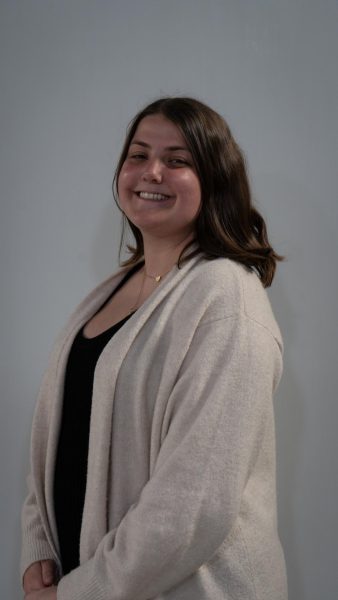
Kathryn Gilroy (she/her) is a double major in Broadcast Journalism and Legal studies planning to graduate in 2024. She is interested in becoming a news...
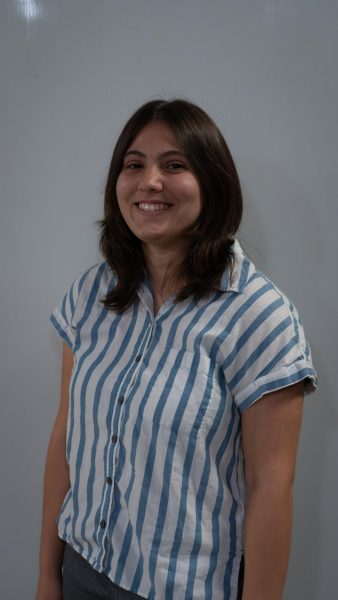
Zoe Kallenekos (She/Her) is a senior studying journalism. Kallenekos loves all things music and dreams of working in radio or podcasting, being a music...
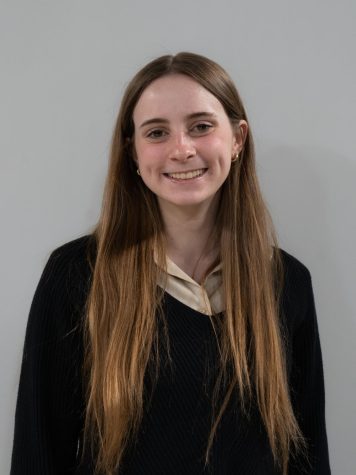
Grace Higgins (she/her) is a freshman studying political science. She is from New Jersey. Higgins is just getting started with journalism, but she's really...
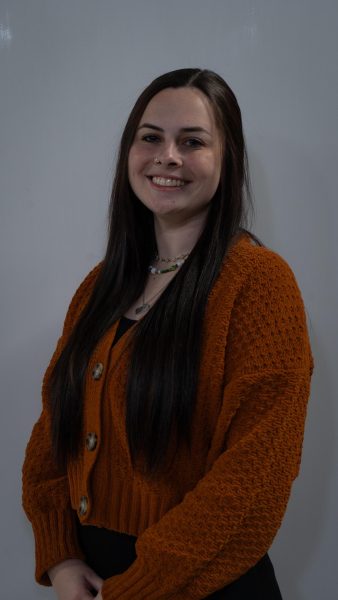
Casey Bacot (she/her) is a senior studying journalism. She enjoys tea, hanging out with her cat, and video games.



